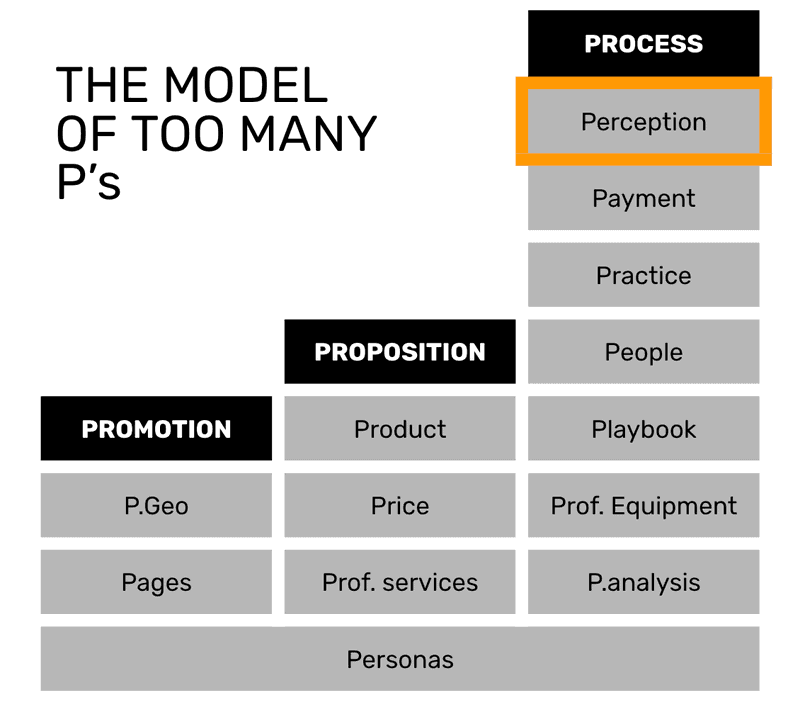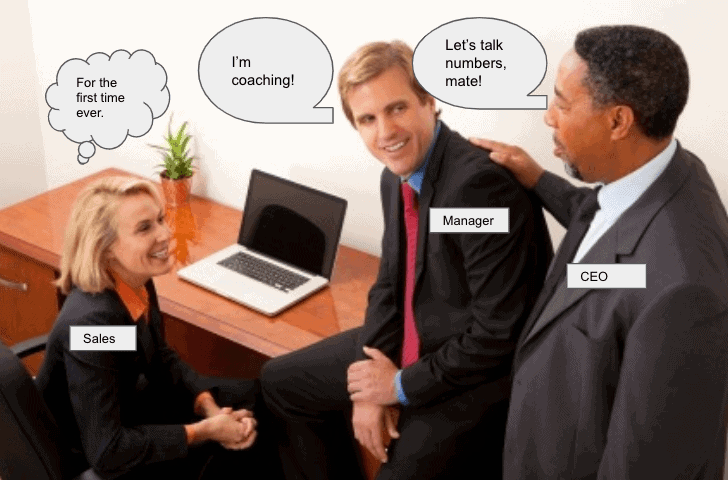tl;dr
The latest addition to the model I use to plot the maturity of elements that influence commercial performance in companies is 'perception'. You can have a perfect team and a perfect product to sell, if you don't respect the sales profession – don't expect to get any satisfying results.
The model of too many P's
When I started consulting B2B SaaS companies my brother, an ex-consultant, told me that I should productize what I do – so I did. I have created a maturity model to plot the current maturity level of a company on a scale and thus show what steps are to take in order to move to the next level of commercial performance. Here is the model overview, which is an adaption of our beloved 4'Ps of marketing:

Perception – the culture element
The latest addition to the lot is 'perception', describing the culture that a company has in supporting sales as a function. What is a culture you might ask? My definition is: A set of behaviors that your team does not question.
Background
The majority of SaaS founders have tech-background and often companies are solely setup by tech-founders who have built an exquisite product that sells itself through inbound marketing in the beginning. I heard CTOs that I highly respect say: "Every problem is best solved by an engineer. If I could choose I would hire an engineer over other positions all the time." Is it me or do you also feel underappreciated by this attitude?
The trouble starts if the first sales hire is made to drive up the conversion of trial signups through sales-assistance. Against a lot of resistance, a decision is made to get someone into this role and the consensus seems to be that the sales hire is likely a. overpaid and b. doing dirty work. Next, the salesperson comes into a room where the only noise is the occasional football table or ping pong and the company banns her to call outside of the office or in designated calling boxes. The company seems to say to the salesperson:
"Don't annoy me while you are making money to sustain this company."
Anti & Pro-Sales culture characteristics

How to change your culture
You might be shocked to learn that you are actually working in an anti-sales culture if you at least agree to two of the above-mentioned characteristics. So what can you do about it?
As I pointed out in my last article, sales management is a strong-link system. The sales team will rarely, if ever exceed the level of the sales manager. So, if your company is serious about changing course, then bring in someone or become that someone with the backbone and perseverance to bring about long-lasting change to your entire organization. I'd recommend three key reforms:
1. Get a sales boiler room
This enables you to get an atmosphere going that encourages people to be in contact with leads and discourages silently sitting to write yet another email. Secondly, it will enable a vibrant feedback culture where a sales manager can directly give props or feedback to calls that she eavesdropped on. Do not allow salespeople to make their phone calls in lonely calling booths!
2. Celebrate success
Most sales reps that I have met are equally motivated by recognition and compensation – so do celebrate good behaviour or great outcomes. If the rest of the organization complains, have your sales team's back and stand-in for their right to party. This does not mean that the rest of the team does not deserve a massive high-five, but make an effort to make your team feel special.
3. Train & improve based on relevant KPIs
Sales is the most transparent profession in the world. Everything is measurable. Prove the doubters wrong that sales is just hot air, but using the right KPIs to continuously improve the performance of individual reps in 1on1s and consequently the performance of your entire team.



